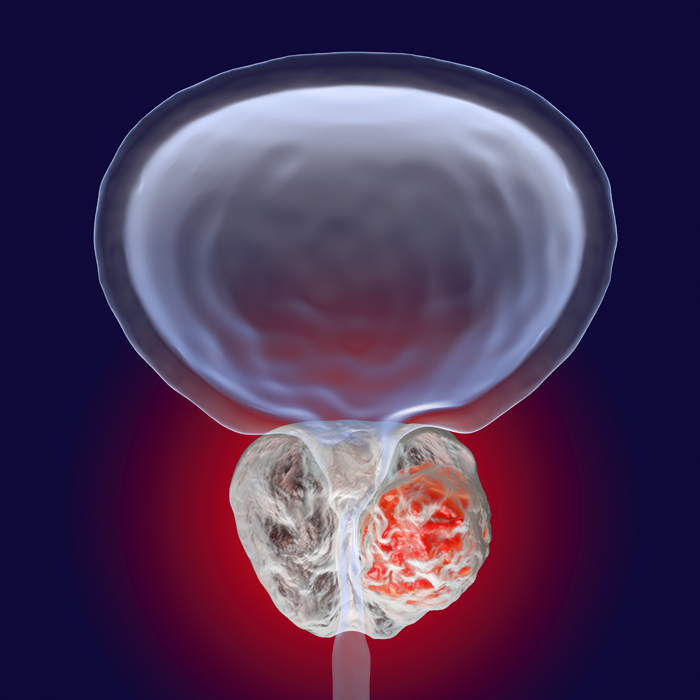Prostate cancer Treatment & Diagnostics in Chirag Enclave, Delhi
Prostate cancer
Prostate cancer treatment depends on how fast a tumor is growing, how much it has spread and your overall health. Surgery is the most common choice if cancer has not spread outside of the prostate gland. Consult a prostate cancer surgery specialist near you to get a sound diagnosis and understand your treatment options.
What is prostate cancer surgery?
Surgery for prostate cancer involves the removal of the prostate gland, some surrounding tissues and lymph nodes. Your oncologist will suggest surgery if the cancer is confined to the prostate gland. Surgery is often combined with other treatment methods like radiation therapy.

When is prostate cancer surgery recommended?
Long-term prognosis of surgery is excellent when cancer has not spread outside of the prostate gland. It is also sometimes the patient’s choice to delay the surgery. This is often okay in the case of small, slow-growing tumors that are considered low-risk. In most of the other cases, a surgeon would recommend a prostatectomy for the removal of cancer in the prostate gland.
Cancer patients under the age of 75 and in good health are usually the best candidates for the surgery. The surgeon will recommend surgery after considering other treatment methods like hormone therapy and radiation therapy. The decision to have the surgery is to be made after discussion with an oncologist and addressing concerns such as the spread of cancer, your quality of life, impact on your urinary and sexual functions and your medical history. Consult a prostate cancer surgery specialist in Delhi to get your questions answered and discuss the options.
Request an appointment at Apollo Spectra Hospitals, Chirag Enclave, New Delhi.
Call 1860 500 2244 to book an appointment.
What are the types of surgery for prostate cancer?
There are three types of prostate surgeries:
- Radical prostatectomy - To remove the prostate and surrounding tissues and seminal vesicles (glands that secrete components of semen), this operation is not suitable for cases where cancer has already spread beyond the prostate gland.
- Transurethral resection of the prostate (TURP) - A thin, lit tube with a cutting tool (resectoscope) inserted through the urethra is used to remove tissues from the prostate. This procedure is used to treat benign tumors and also relieve symptoms caused by tumors in the prostate.
- Pelvic lymphadenectomy - To remove the lymph nodes in the pelvic area
There are several types of radical prostatectomy:
- Retropubic prostatectomy - The surgeon extracts the prostate gland through an incision made in the lower abdomen.
- Perineal prostatectomy - The surgeon extracts the prostate gland through an incision made between the testicles and the anus.
- Laparoscopic prostatectomy - The surgeon extracts the prostate gland guided by a camera tube inserted through several incisions in the abdomen.
Why is a prostatectomy conducted?
A prostatectomy is commonly conducted to help treat or remove tumors that are localized to the male prostate gland. This treatment is often used to alleviate the symptoms of BPH. The procedure can include the removal of the gland entirely as well as the removal of the surrounding lymph nodes. This is, however, the most extreme version of the surgery and not applicable to all patients. For accurate information about a particular case, please consult an oncologist.&
What are the benefits of a prostatectomy?
The benefits of a prostatectomy include:
- Curing the cancer if caught at an early stage. This is possible if the cancer has not spread beyond the gland itself.
- Pain relief in the most serious of cases
- A possibility of combating a more serious case is possible when the post-surgical treatment combines hormone therapy and radiation. The likelihood of recession of the cancerous tissue is less, the longer the condition is left untreated or undetected.
- This procedure can also help relieve pressure on the urinary tract and improve BPH symptoms.
What are the expected complications of prostate cancer surgery?
The surgery, in general, has very low risks of complications. Possible complications arising from nerve damage during the procedure are:
- Urinary incontinence/lack of voluntary control on urination
- Erectile dysfunction
Other complications associated with the surgery include:
- Bleeding
- Urinary leaks
- Blood clots
- Injury to nearby organs and nerves
- Groin hernia
- Infection
- Impotence
Conclusion
Immediate treatment will not be required for every case. But an early diagnosis is always good for active surveillance and understanding of the progress of your cancer. The outlook for men with prostate cancer is good with studies showing almost a hundred percent survival rate.
In most cases, two or three days of hospitalization will be required after prostatectomy. A urinary catheter will be inserted during the surgery which might have to be used at home as well for a few days or weeks. Pain medications will be prescribed after the surgery. It could take weeks or months for urinary and sexual functions to return to normal. Regular follow-up is also required to make sure there is no relapse.
Studies show that men who have prostatectomy have a 50 percent chance of being impotent. The risks of incontinence are lower. There are however various methods to treat erectile dysfunction. There are high chances of restoring potency after treatment.
- Cancer will be completely removed
- The best outcome can be achieved when combined with other forms of therapy
- Less and easier follow-ups compared to other treatments
Symptoms
Our Top Specialities
NOTICE BOARD
CONTACT US
CONTACT US
 Book Appointment
Book Appointment


.svg)
.svg)
.svg)
.svg)








